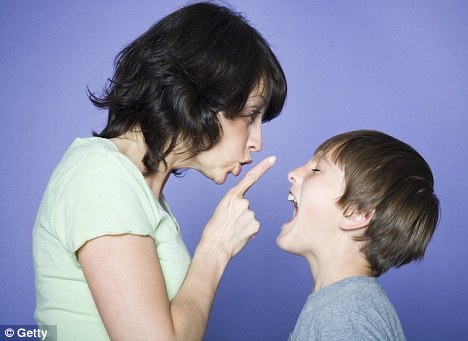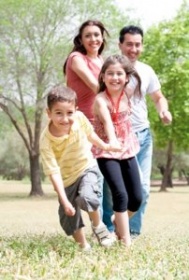 Most parents will tell you how their children constantly fight and blame, hitting and screaming at each other to the point of exhaustion or using the infamous “It wasn’t my fault” line. They just wish their kids would take responsibility for their actions.
Most parents will tell you how their children constantly fight and blame, hitting and screaming at each other to the point of exhaustion or using the infamous “It wasn’t my fault” line. They just wish their kids would take responsibility for their actions.
But why do children blame others for everything? Maybe the more important question is what is the bestway a parent can deal with this situation?
Take a moment to see through your child’s eyes and you might be surprised. Your child’s world is full of blamers…from the politician on the evening news down to his friends at school, everywhere around him he hears excuses for bad behavior. You might have even had a story to tell that policeman the last time you got a speeding ticket. Trying to get out of trouble through blaming is normal nowadays.
The Blame Game: In the beginning…
From the start, children dont’t realize they are making excuses until the first time it helps get them out of trouble. When they realize it works, it becomes a part of their communication process-they will blame whenever problems arise. The trouble with this scenario is that, as he matures, neither his teachers, spouse or employer will tolerate the blame game.
One therapist who dealt with hardened teens in a group home recommends addressing the situation objectively, refusing to be pulled into an argument. Focusing on the facts, insisting on responsibility and delivering consequences keeps the conversation heading in the right direction. Handled in a serious, yet emotionless way, it is easier to stay focused on the ultimate goal: teaching children to accept responsibility for their actions and stop blaming.
Here are 3 action plans parents can take to stop the excuses.
Don’t let it slide:
Your child is blaming a friend for keeping them out too late, what do you do? Let your child know that they are the only one responsible for their actions in your eyes. It was their choice…their actions, and will be their repercussions to deal with. No ifs, and or buts.
 Devise a plan:
Devise a plan:
Recognize the action or inaction that is causing the problem (example: hitting a sibling), vocalize your preferred action choice for the child (coming to you first), offer various alternatives that the child might use in the future.
Set a good example:
A parent is responsible for teaching, setting limits and coaching their child. Children look up to their parents, so the next time you find yourself making excuses, stop and think. Take responsibility for your actions and dont’t be ashamed to say your sorry. Remember to hold your temper and focus on the behavior. Be committed to making everyone in the family responsible for their actions, and over time it will get easier.
From early on, parents tell their children what to wear, when to go to bed, what programs to watch, etc… So it may come as a surprise to a child to know that they have the ability to choose which course of action to take, that they are not simply victims of their circumstances and not responsible for the outcome. Actions are choices in motion and through your guidance and direction, your child will feel more able to make responsible decisions.






